
The idea of citizen science isn’t a new one. Amateur scientists have been making important discoveries as far back as Ug the Neolithic hunter and her ‘wheel’, while even Newton, Franklin, and Darwin were self-funded for part of their careers, and Herschel discovered Uranus while employed as a musician. It’s only from the late 20th century that it’s crystallised into what we know today, with the North American Butterfly Association using its members to count the popular winged insects since 1975. Zooniverse has users classify images to identify stellar wind bubbles, track coronal mass ejections, and determine the shape of galaxies. Then there’s Folding@Home and other cloud computing projects – they count too.
These citizen science projects are, essentially, experiments in human computation. You can even get paid for doing them through Amazon’s Mechanical Turk programme. What none of them involves, however, is playing PC games. And while sites such as Artigo (artigo.org unless you want a Portuguese flooring company) gamify things a bit by having you assign tags to paintings while paired with another player, scoring points when your tags match, it’s not exactly AAA.
This story is from the {{IssueName}} edition of {{MagazineName}}.
Start your 7-day Magzter GOLD free trial to access thousands of curated premium stories, and 9,000+ magazines and newspapers.
Already a subscriber ? Sign In
This story is from the {{IssueName}} edition of {{MagazineName}}.
Start your 7-day Magzter GOLD free trial to access thousands of curated premium stories, and 9,000+ magazines and newspapers.
Already a subscriber? Sign In

A New Dawn - The rise, fall and rise again of PC Gaming in Japan
The so-called 'Paso Kon' market (ie katakana's transliteration of 'Pasonaru Computa') in Japan was originally spearheaded in the 1980s by NEC's PC-8800 and, later, its PC-9800.
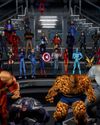
MARVEL: ULTIMATE ALLIANCE
Enter the multiverse of modness.

SLIDES RULE
Redeeming a hated puzzle mechanic with SLIDER
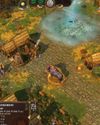
GODS AND MONSTERS
AGE OF MYTHOLOGY: RETOLD modernises a classic RTS with care

PHANTOM BLADE ZERO
Less Sekiro, more Wo Long: Fallen Dynasty

STARR-MAKING ROLE
Final Fantasy XVI's BEN STARR talks becoming a meme and dating summons
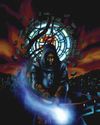
THIEF GOLD
Learning to forgive myself for knocking out every single guard.

HANDHELD GAMING PCs
In lieu of more powerful processors, handhelds are getting weirder
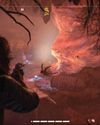
FAR FAR AWAY
STAR WARS OUTLAWS succeeds at the little things, but not much else shines
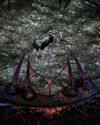
FINDING IMMORTALITY
Twenty-five years on, PLANESCAPE: TORMENT is still one of the most talked-about RPGs of all time. This is the story of how it was created as a ‘stay-busy’ project by a small team at Black Isle Studios